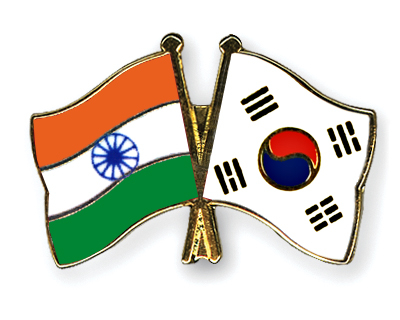NEW DELHI: India and South Korea signed a civil nuclear agreement on Monday, a deal that gives the north-east Asian country an entry into India's nuclear energy sector. The deal, India's ninth, was signed by President Pratibha Patil in Seoul with South Korean President Lee Myung Bak. President Lee termed the nuclear cooperation agreement as "historic" and which would act as "a milestone, demonstrating that our two countries have now truly become strategic partners".
Negotiated over three rounds, the last in December, the India-South Korea agreement carried the least amount of historical nuclear "baggage" as far as India is concerned. Officials involved in the negotiations described them as "clear, pragmatic and smooth". Both sides held some extra informal meetings on the deal this year and the Indian side was impressed with the proactive approach of the South Koreans in this sector.
The India-South Korea deal was always going to be an easier sell than the India-Japan deal. Japan and India have been locked in negotiations which are really going nowhere. The Japanese have been hobbled by the Fukushima disaster, but they have been carrying a long-held nuclear baggage, which Indian negotiators find "unrealistic".
Japan, said sources, may have quietly dropped the demand that India sign the CTBT, but they continue to hold out a laundry list of actions India must take to reassure them before they can sign the deal. The thing is, without an India-Japan deal, a number of western countries entering the Indian nuclear sector would find it difficult to get in, because Japan holds the licences for critical components of nuclear reactors.
That was until the South Koreans entered the market. Having swiped a massive UAE nuclear deal from under the noses of the French, Koreans have established themselves as not only much cheaper nuclear suppliers, but more crucially, from the Indian point of view, as an alternative supply chain for nuclear reactors and its components like giant forgings.
Negotiated over three rounds, the last in December, the India-South Korea agreement carried the least amount of historical nuclear "baggage" as far as India is concerned. Officials involved in the negotiations described them as "clear, pragmatic and smooth". Both sides held some extra informal meetings on the deal this year and the Indian side was impressed with the proactive approach of the South Koreans in this sector.
The India-South Korea deal was always going to be an easier sell than the India-Japan deal. Japan and India have been locked in negotiations which are really going nowhere. The Japanese have been hobbled by the Fukushima disaster, but they have been carrying a long-held nuclear baggage, which Indian negotiators find "unrealistic".
Japan, said sources, may have quietly dropped the demand that India sign the CTBT, but they continue to hold out a laundry list of actions India must take to reassure them before they can sign the deal. The thing is, without an India-Japan deal, a number of western countries entering the Indian nuclear sector would find it difficult to get in, because Japan holds the licences for critical components of nuclear reactors.
That was until the South Koreans entered the market. Having swiped a massive UAE nuclear deal from under the noses of the French, Koreans have established themselves as not only much cheaper nuclear suppliers, but more crucially, from the Indian point of view, as an alternative supply chain for nuclear reactors and its components like giant forgings.
The India-South Korea deal therefore does two things -- it allows India to tap into another country's nuclear expertise and it takes the pressure off the India-Japan nuclear deal. India now has the option of letting the Japan negotiations proceed at a pace Japan is comfortable with. While India remains conscious of Japan's nuclear sensitivities, Tokyo is unlikely to be able to pressure India to taking certain steps. Japan, on its part, runs the risk of coming second.
On the other hand, South Korea will now be an added voice for India to ratify the Convention for Supplementary Compensation (CSC), which is expected to bring India's nuclear liability law up to speed. As it is at present, the Indian liability law has evoked protests from many western and Indian companies in the nuclear sector. The Indian government is believed to be putting out the implementing guidelines for the liability law in the monsoon session of Parliament.
The Times of India
![Eagles of brasstacks [Cyber force]](https://blogger.googleusercontent.com/img/b/R29vZ2xl/AVvXsEg_a6mLXb5xkyp4ojg9Q7j7EvO6GYmGukFkj09faLTZscMjI6zW9W9I_XiOCMxf7hPX9srmCE8WFHpDgLsQRCnLZaso_JmgO_J5pWuByrd6BWFFRQNqCfmL-FeWwfe4eJGo2FQlqkkOnVeU/s1600/untitled.bmp)


No comments:
Post a Comment